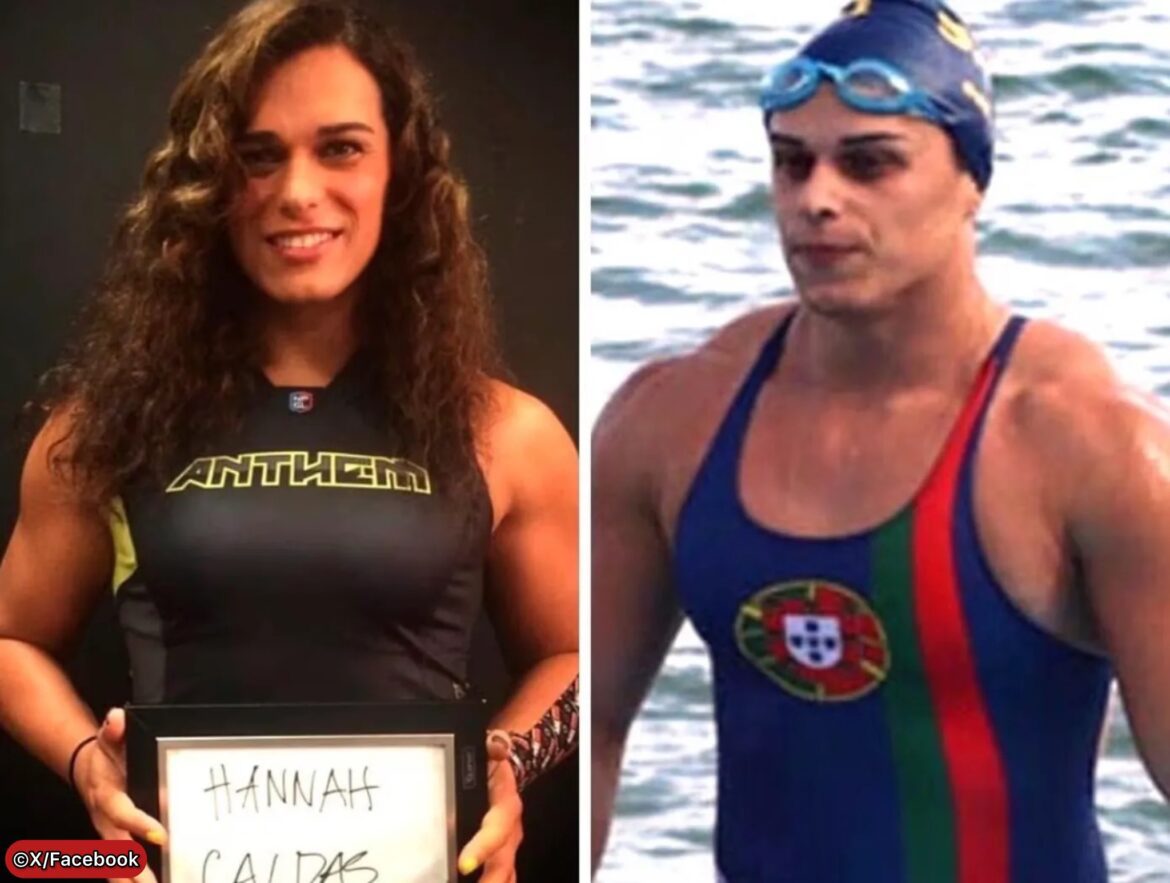Swimming veteran Hannah Caldas has quit the sport after being slapped with a five-year ban for refusing a gender verification test that she described as invasive and expensive.
World Aquatics has suspended Caldas until 2030 and wiped her results from the last three years after she declined to undergo a gene test to determine her biological sex. The governing body’s decision has reignited fierce debate about privacy rights versus fairness in women’s sport.
Caldas, 48, won her age category in the women’s 100m at the World Aquatics Masters Championships last year. She also scooped the top prize in all five individual races she entered at the US Masters Swimming Spring National Championship, demonstrating her dominance in veteran competition.
However, her success attracted scrutiny after it emerged that Caldas competed in the men’s division in USMS events between 2002 and 2004. The switch prompted questions about her eligibility to compete in women’s categories.
Earlier this year, a USMS review concluded that Caldas had produced documents that demonstrated she was assigned the female sex at birth and that she identifies as female. Despite this finding by the American governing body, World Aquatics demanded chromosomal testing.
Caldas refused to carry out the gene test required by the international federation, citing both financial and privacy concerns. Her refusal triggered the automatic suspension that has effectively ended her competitive swimming career.
She said chromosomal tests are invasive and expensive procedures, adding that her insurance refuses to cover such testing because it is not medically necessary. The costs associated with genetic testing can run into thousands of pounds.
Caldas highlighted that no US state requires genetic tests for recreational sports events and that even US Masters Swimming, the national governing body for recreational adult swimming in America, does not demand such testing for any of its events.
The swimmer narrowly missed out on representing Portugal at the London 2012 Olympics by three tenths of a second. She has also enjoyed success in other sports, winning numerous global CrossFit events and equalling the women’s indoor 500m rowing world record.
Her athletic achievements across multiple disciplines demonstrate exceptional versatility and competitive drive. However, the controversy surrounding her gender verification has now overshadowed her sporting accomplishments.
Caldas acknowledged she understands and accepts the consequences of not complying with a World Aquatics investigation. However, she framed her refusal as a principled stand for medical privacy rather than an admission of ineligibility.
She stated that if a five-year suspension is the price she must pay to protect her most intimate medical information, then it is a price she is happy to pay for herself and for every other woman who does not want to submit to highly invasive medical testing just to swim in an older adult competition.
Caldas revealed she has been swimming in sanctioned events for over 30 years and is prepared to let it all go. The decision to walk away from competitive swimming represents a significant sacrifice for someone who has dedicated decades to the sport.
She said her life and privacy have been invaded enough and it is time to prioritise her health and personal safety. The statement suggests the controversy has taken a considerable toll on her wellbeing beyond the sporting implications.
The case highlights the complex tensions between maintaining fair competition in women’s sport and respecting athletes’ privacy and bodily autonomy. Gender verification testing has a controversial history in athletics, with past procedures widely condemned as humiliating and degrading.
World Aquatics has faced criticism for imposing requirements on masters competitors, who participate primarily for recreation and fitness rather than elite competition. Critics argue the level of scrutiny applied to veteran events is disproportionate to the stakes involved.
Supporters of strict gender verification argue that biological advantages persist regardless of competition level and that women’s categories must be protected. They contend that documentation alone is insufficient to ensure fair competition.
The fact that Caldas previously competed in men’s divisions has fuelled suspicions amongst some observers, though supporters note that many cisgender women compete in mixed or men’s categories when women’s divisions are unavailable.
Her refusal to undergo testing, whilst framed as a privacy issue, has been interpreted by critics as evidence she has something to hide. However, others argue that demanding invasive medical procedures as a condition of recreational sport participation sets a dangerous precedent.
The retroactive erasure of three years of results represents a significant penalty beyond the five-year suspension. Masters swimmers often compete for decades, building legacies within their age groups and communities.
Caldas’s decision to quit rather than comply effectively ends the dispute, though questions about the appropriateness of World Aquatics’ policies remain. Her case may influence how other sporting bodies approach gender verification in non-elite competition.
The controversy occurs against a backdrop of intense debate about transgender participation in sport. However, there is no indication in public statements that Caldas is transgender, making the case distinct from those debates.
World Aquatics has not publicly commented on the specifics of Caldas’s case, citing athlete confidentiality. The organisation’s gender verification policies apply globally to all competitions under its jurisdiction.
Follow for more updates on Britannia Daily



